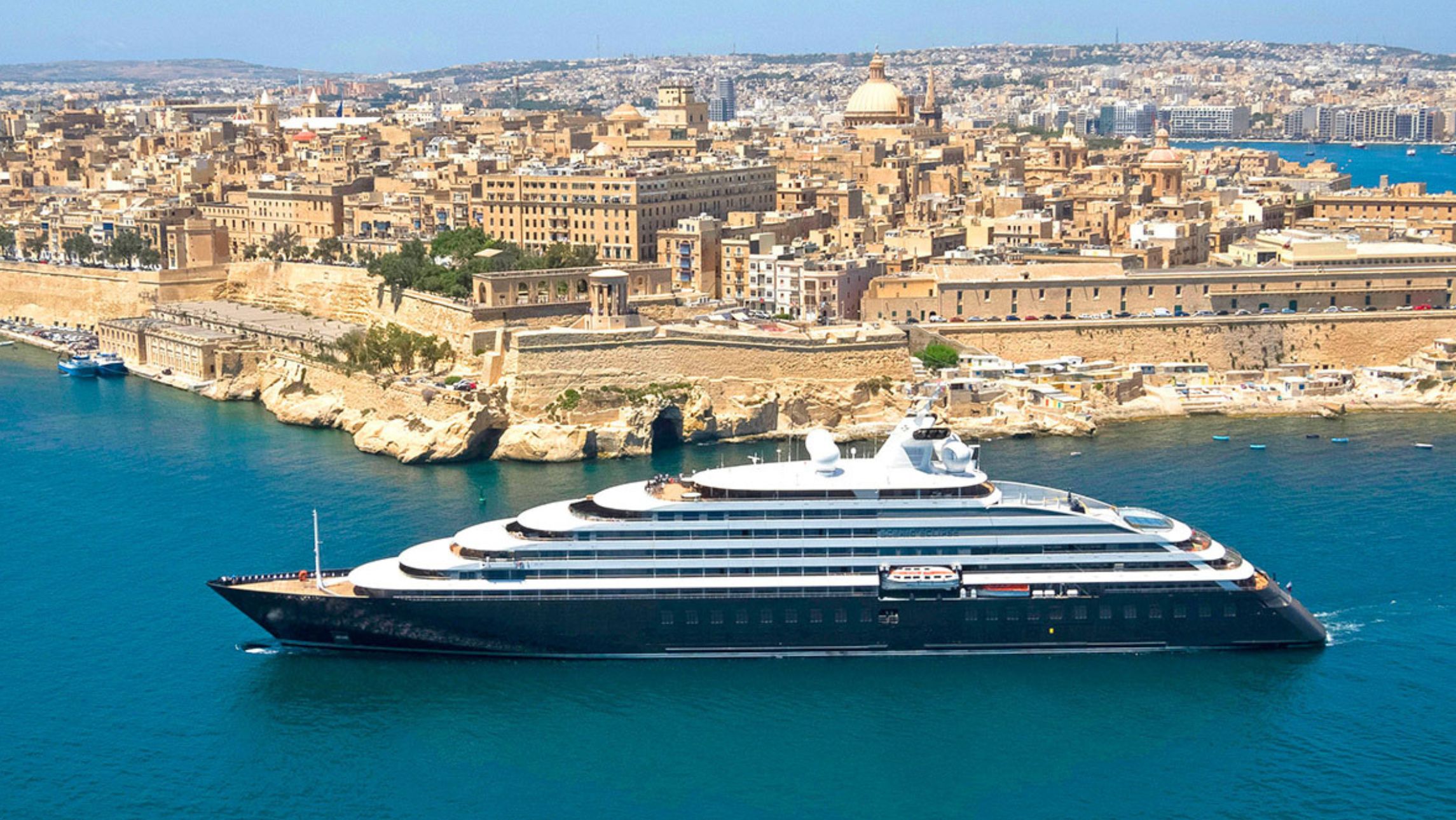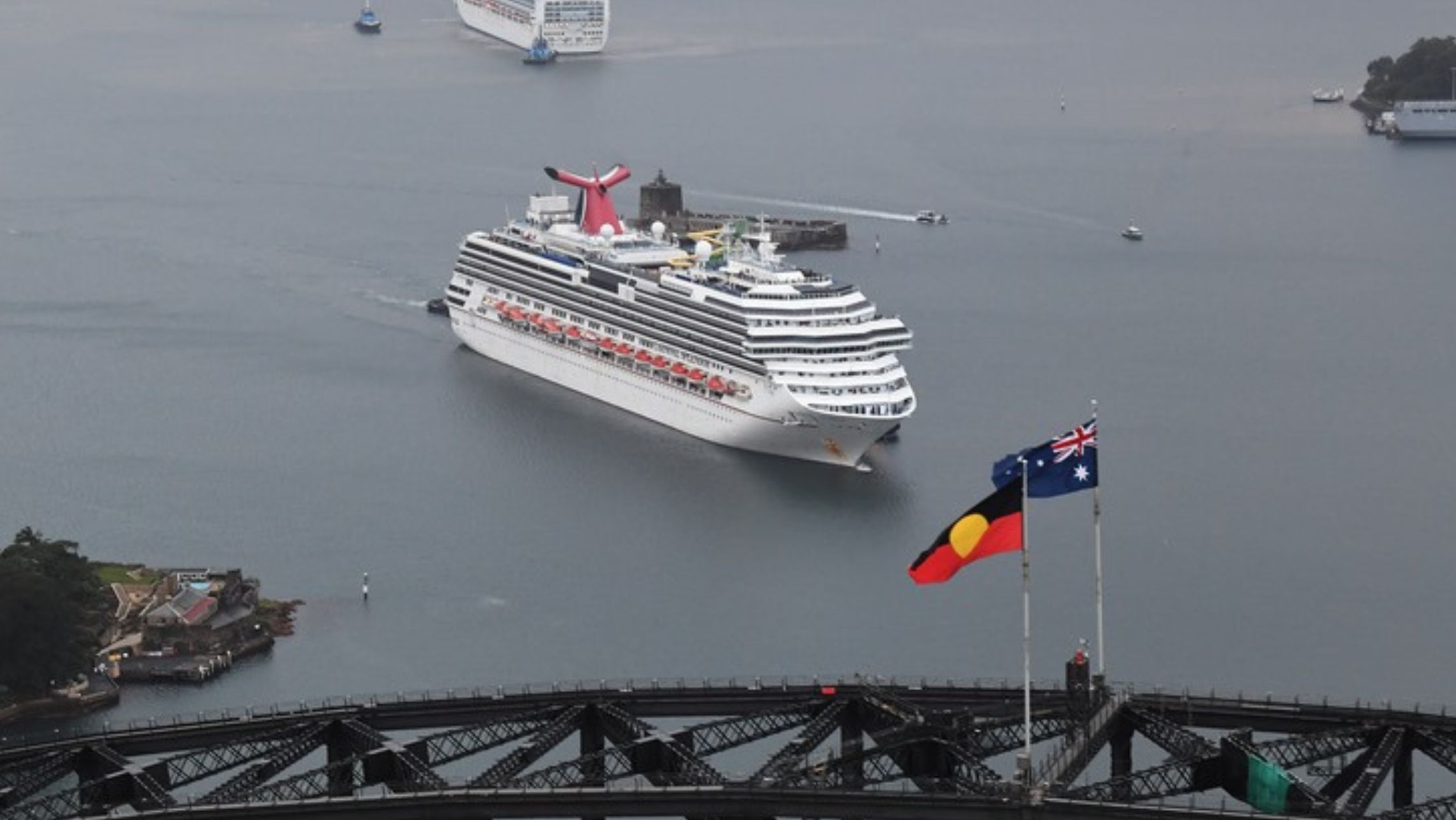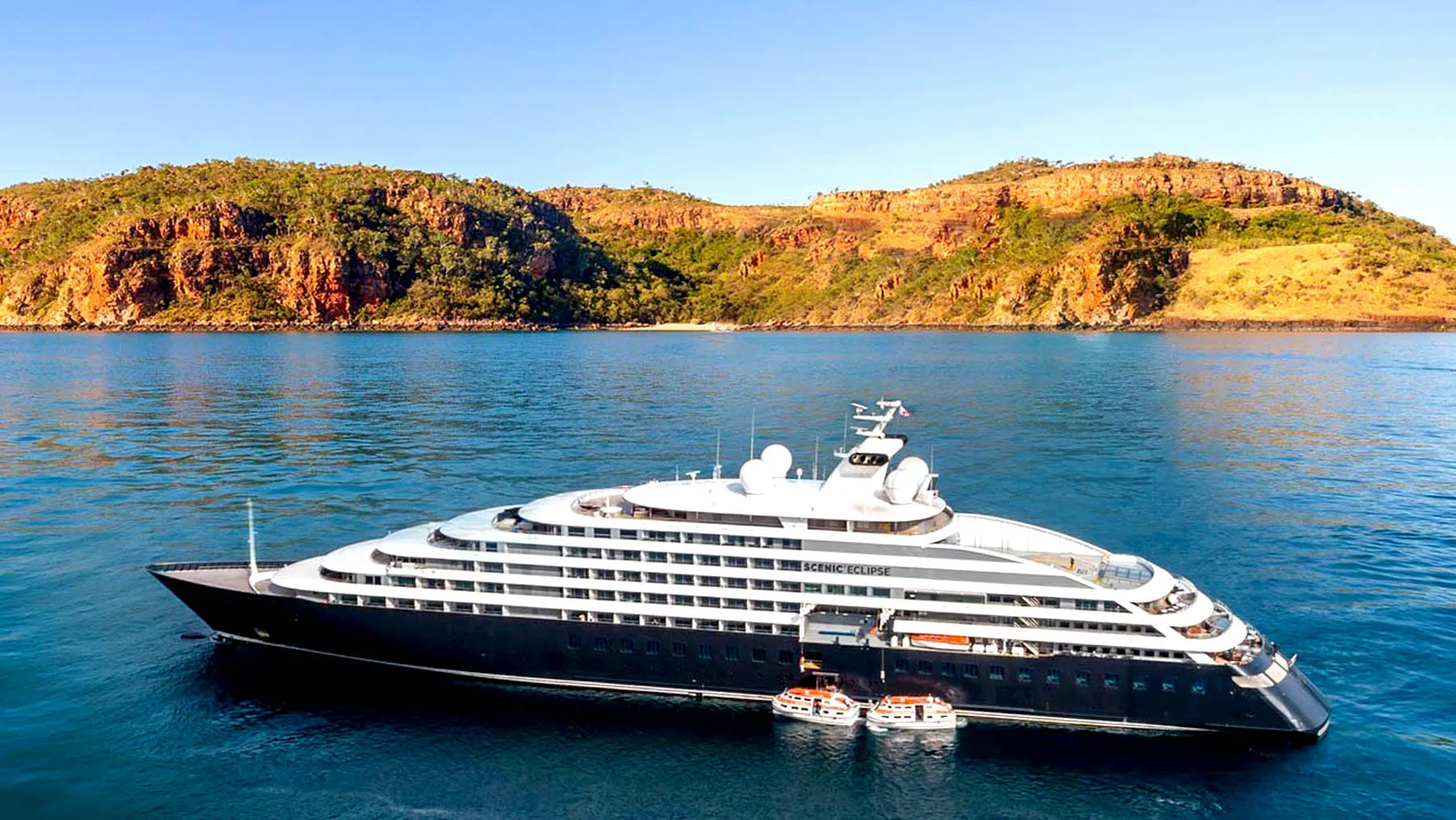Teacher David Moore has won a landmark case against one of Australia’s leading cruise companies over his treatment when heavy rain in France and Germany sparked flooding and stopped ship movements.
Yesterday, Scenic, one of Australia’s biggest river cruise lines with 15 vessels in its fleet, signalled it would appeal.
A statement to Cruise Passenger said: “Scenic will be appealing the decision handed down yesterday.
“We note there have been reports of Scenic’s estimated liability for the payout to the class. These estimations are premature and in any event it is important to note that not all cruises were affected in the same way”.
There could be as many as a further 1,264 cases and lawyer for the passengers yesterday estimated compensation and damages could come to over $14 million, if all succeeded and were compensated in the same way as Mr Moore.
The judgement singled out the wording in the company’s glossy brochures and compared this with what actually happened during major flooding in Europe four years ago. Scenic had pointed out its terms and conditions meant it could offer different modes of transport so passengers could still see the sights on their chosen itineraries.
Tim Somerville from Somerville Legal, who represented the plaintiffs and was a passenger himself on one of the affected ships, told Cruise Passenger: “The judge, despite Scenic’s terms and conditions, said they are bound by the Australian Consumer Law, which contains various guarantees.
“These include a guarantee that, if you pay for something, you are entitled to receive what you paid for. Scenic argued that the passengers got, at least part, what they paid for.
“However, the judge found that the lead plaintiff, David Moore, would not have taken the cruise at all if Scenic had been honest with him, and told him of the problems as soon as they found out about them. Accordingly, the judge found that he was entitled to 100% refund of what he paid for the cruise.”
During the huge floods which occurred across Europe in 2013, river cruise lines were brought to a halt by the rising waters, and many sent out warnings to passengers and cancelled voyages.
Scenic and Evergreen Tours, however, took a different view. Passengers were bussed to destinations and, in some cases, cancellations were only accepted when a passenger asked.
In a forthright judgement, Justice Peter Garling quoted from internal Scenic company emails in which one senior executive said of passenger during the floods: “We need to work on their Europe dreams, and make sure that they get to experience as much as possible but just on a different form of transport.”
The judge said this “reveals much about Scenic’s attitude to passengers and the expectations created by the Scenic brochure in which, as elsewhere recorded, passengers who booked on a Scenic cruise were invited …to join Scenic “for a once in a lifetime cruise, along the grand waterways of Europe … immersed in all‑inclusive luxury”.”
“Putting it shortly,” said the judge, “this attitude displays a complete indifference to such created expectations…
“The notion of “a different form of transport” also ignored the very significant difference for passengers relaxing on board a cruising ship with the choice as to where they would sit and relax, including in the privacy of their own cabin, when compared with travelling on a coach, restrained in their seat by a seatbelt, in fixed seating without any real variation in where to sit or different types of chairs, and without privacy.”
Comparing a coach tour with a luxury river trip was “simply not comparable or interchangeable experiences for passengers”, the judge concluded.
Mr Moore received $12,990 – $10,990 for loss of value and $2,000 as damages.
The high-school teacher from Lake Macquarie said he was happy with the result for himself and the other plaintiffs.
“My partner and I spent around $27,000 for this river cruise and that’s a holiday without flights. One of the major reasons why we decide to book a river cruise is because we only had to unpack once. But instead, we unpacked and repacked three times.
“We weren’t provided with the luxurious settings we were promised and we had to spend up to eight hours on uncomfortable coaches,” he said.
A spokesperson from Scenic said, ““It is important that we review the judgment in detail before making specific comment on the decision. More broadly, I can confirm it has always been Scenic’s practice to deliver itineraries as close to schedule as possible without compromising on safety or comfort.
To put some context around the matter, despite the extraordinary weather conditions in Europe in early 2013, less than five per cent of Scenic cruises in the past four years resulted in any itinerary change.
“During that time, we welcomed around 200,000 guests across more than 8,300 cruise days, the vast majority of which were unaffected.
But while the prospect of schedule interruptions is statistically very low, we take nothing for granted and have continued to invest in our river cruising product.”
Throughout the case, Scenic maintained that poor weather, very high river levels and flooding with the consequent adverse impact on navigation and on the timely operation of locks and the provision of docking facilities, amounted to circumstances entirely beyond its control and it ought not be held liable.
Changing weather and variable river heights were an ordinary incident of river cruising which ought to be anticipated by its passengers, the line said.
A central contention in the defendant’s case, according to the judgement, lies in the defendant’s definition of the services which it provided, including “ to use reasonable efforts to substitute, where required, a motor coach for a vessel, for example.”
“Scenic rejects the proposition that it was obliged to provide any warning to the plaintiff or group members about the difficulties which may be encountered on their cruises.”
Mr Somerville said that Judge Garling found that 10 out of the 13 cruises which were involved were affected while one of the cruises had no problems and the other two were partially affected.
Judge Garling has ordered the parties to file further submissions and has relisted the case for further argument in November.









We have travelled with Scenic on numerous occasions and cannot fault their attention to detail. When you book the trip the terms and conditions clearly state that a different mode of transport could be used in the event of bad weather. If they had done their research they would see that there is often trouble with flooding or low water levels on the rivers in Europe and you should be prepared. Scenic still provided a tour of Europe which would have all been 5 star accommodation and service. Water levels also change quickly, at what point should they have cancelled the tour? What if travellers were already in Europe on another cruise, when do you cancel? Its not all about travelling on the river, its also about seeing the sights. The weather is out of anyone’s control. I would still recommend Scenic to everyone.
My wife and I traveled on a cruise at that time from Budapest to and experienced the same problems. If we wanted a coach trip we would have chosen one, the whole idea was to unpack once not multible times . By the time we arrived from the bus ride all there was no time to relax before dinner, then had to get up early the following morning for another uncomfortable bus tour. I wrote letters of complaint but these were ignored by Scenic, a response which seems typical. If contemplating a tour I would recommend to try other operators.
OMG Scenic has no say over the weather, floods or not enough water.(Read fine print)
We cruised with them in October 2016 and can not fault them for anything.
We are off on another scenic holiday in 3wks.
Have recommended them to lots of people.
Keep up the good work Scenic
Well done David Moore. We were on the same cruise and Scenics attitude to its’ passengers was pathetic. Judging by some of the reviews of the river cruises in 2015,2016 and 2017, their attitude to their travellers when things don’t go to plan remains the same. One would have thought they would have learnt from the mistakes made in 2013. They deserve to be given a wide berth.
I have to say- it looks to me scenic has been very short sighted…
Their argument implies passengers should be just as happy with coaches – really?
Someone expecting to be on a scenic river cruise should reasonably be expected to be equally happy with coach?
“Scenic rejects the proposition that it was obliged to provide any warning to the plaintiff or group members about the difficulties which may be encountered on their cruises.”
If this is scenic’s approach – I would rule them out as an option for river cruises.
I couldn’t trust them to meet reasonable obligations.
Pay the money scenic, don’t appeal, learn and treat your customers better…